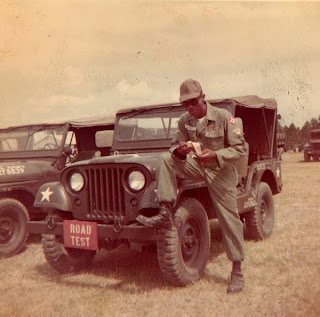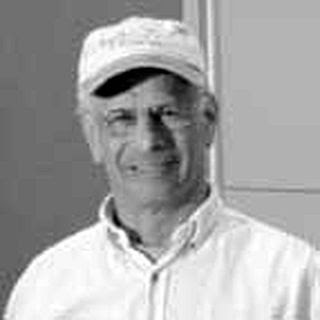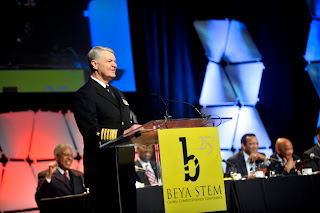Grandson carries on family tradition of National Guard service By Staff Sgt. Blair Heusdens Florida National Guard Public Affairs
JACKSONVILLE, Fla., (Feb. 23, 2011) – It was 1963. Northeast Florida was center stage of the Civil Rights Movement. Protests, marches and riots – some peaceful, some violent – marked a period of resistance from segregation and movement toward equal rights in America.
Amidst the racial tension, James Solomon Bryant, an African American postal worker from Jacksonville, Fla., became the first African American to enlist in the Florida National Guard in October 1963. Bryant remembers feeling proud as he walked down the streets of downtown Jacksonville in uniform for his first drill at the Maxwell C. Synder Armory, located on the corner of Market and State Streets.
“When it was announced that I was the first black Guardsman, people would look at me like, ‘What? Him?’” remembers Bryant. “It was an accomplishment, you can imagine. We just thought of the armory as some place of socializing, but it was the headquarters that controlled the first line of defense; and you’re a part of it.”
 | Bryant served in the Air Force during the Korean War, before returning in 1953 to North Florida to find a job as a postal worker. The opportunity to join the Florida National Guard came from a co-worker at the post office, a second lieutenant in the 55th Command Headquarters. He mentioned to Bryant that he was interested in getting an African American into the National Guard. Bryant, though unwilling at first after nearly 10 years out of the service, decided to give it a go. |
Pride of service
Bryant remembers taking his physical and the oath of enlistment into the Florida National Guard in the evening so as not to draw too much attention. His aptitude tests indicated he had mechanical abilities. A slot was available in the motor pool section of the 55th Command Headquarters, so Bryant came into the Florida National Guard as a Wheeled Vehicle Mechanic.
“I grew up around trucks, so it wasn’t anything I hadn’t done as far as changing tires, working on engines and transmissions,” said Bryant. “I was not a novice to that.”
Bryant served four years in the Florida National Guard. During that time, he had the opportunity to serve on state active duty during Hurricane Dora in 1964 by providing a generator to power a local school. He was also on active duty during the 1964 race riots in Jacksonville, pulling duty at the armory where rioters were held. Bryant was also chosen for the honor of driving Governor Kirk and Generals Ballard and Simmons for a review of the troops during Kirk’s gubernatorial inauguration in 1967.
During annual training at Fort Stewart, Ga., in 1966 Bryant received top marks and praise from reviewers while serving as the chief of the unit’s motor section. The report states that, “Specialist 5 Bryant of Maintenance was in charge and is very capable, a definite credit to the unit.”
“In the motor pool, we just prided ourselves because we wanted our vehicles to look top-notch,” said Bryant. “The deuce and a half had to hum right. We tuned them to perfection and they recognized that.”
Bryant said there were some problems because of his race, but, for the most part, he got along well with his fellow Soldiers.
“I look at it as God-given, how you treat people,” said Bryant. “Because I came not as a novice, I came as a citizen; I came as a married person; I came as a deacon; I came as a valued employee with the postal service. So a combination of skills that were God given – just being able to treat people right – endeared me to them and we got along good.”
After leaving the Florida National Guard, Bryant became more involved with the post office and received his introduction into postal management when he became the first black assistant safety officer in 1971. He continued to advance in leadership positions throughout his 35-year postal career before retiring in 1988.
“God’s Men”
Bryant took the values he learned in the military, along with his concern for people, and put them into service within the Jacksonville community. He was ordained as a deacon at the Mount Ararat Baptist Church in Jacksonville in 1958. Through the church he became involved in local politics, where he had the opportunity to meet and interact with many different people within the community.
“God called me into ministry, not as a pastor of a church, he just simply spoke to me early one morning,” said Bryant. “He said, ‘God’s men,’ very audible. He gave me direction of what he wanted, which is to make men of caliber – not in the limelight or spotlight – just men.”
Bryant assembled a group of approximately 20 men to make a difference in the community. He believed that good men of character from all walks of life could have a positive impact in the Jacksonville area.
“I told them this, ‘I don’t care who you are; you leave that at the door, because now we are all men of equal ground. We are able to do things for people God’s way,’” said Bryant.
Bryant is involved in several projects within the Jacksonville community through his ministries. He works closely with the Jacksonville Sheriff’s Advisory Council, which encourages partnerships between law enforcement and the community. Bryant also helps ex-offenders who are coming out of the prison system and works closely with the Baker County Correctional Facility. This past Christmas, Bryant and his peers helped 63 local children through the Angel Tree program.
“We look at religion as a blessing,” said Bryant. “Not because of title or prominence, but to be able to do something for people and keep that common touch.”
Family ties
As the eldest of six children, family has always been very important to Bryant. His large family includes four children (one who died in 2000), seven grandchildren and five great grandchildren.
Patriotism and sense of service are evident in the military tradition within his family. Bryant’s son, the late James S. Bryant, III, served in the Florida National Guard and one of his grandsons, Sgt. Douglas Bryant, currently serves in the Florida National Guard as an information technology specialist.
“When I was younger, I used to visit Camp Blanding,” said Douglas. “My grandfather would take me out there and show me around a little bit and he gave me the story along the way about him being the first black national guardsman.”
Like many, the youngest Bryant saw the benefits that the Guard offered for education, but has come to appreciate the impact the National Guard has had upon his family and the opportunities that are available to him.
“As I started going through the day-to-day operations of the Guard and as I went through school, it allowed me to find a career within the Guard,” said Douglas.
With a degree under his belt, Douglas is focused on the future, a future he sees with the Florida National Guard. One of his goals is to become a warrant officer.
“I want to be the first officer in the family,” said Douglas. “Being a trailblazer; it’s kind of hard to picture yourself doing that; because nobody before me has done that. I not only want to make myself proud, but also my family and my country. I want to try to make some more first time-type history within the family.”
The eldest Bryant doesn’t regret his military service and carries an immense amount of pride in his accomplishments and service.
“It gave me an opportunity to really know how to transition from civilian to military at a phone call,” Bryant said. “I call it ‘Operation Ready.’ You become the state’s first defender. You never forget that ever that you’ve sworn the duty.”
Although his military service was groundbreaking, Bryant’s service to the Jacksonville community has been with less display but is no less important. A self-professed workaholic, Bryant plans to continue to work to make a positive difference in the Jacksonville community.
“There are so many good programs to keep our young people involved,” said Bryant. “We take pleasure in sharing what’s happening in Jacksonville. We have a cross section of things that we’re doing; we’re not making a big splash, just doing it.” ###
TEXT and IMAGE CREDIT:
Florida National Guard Public Affairs




































